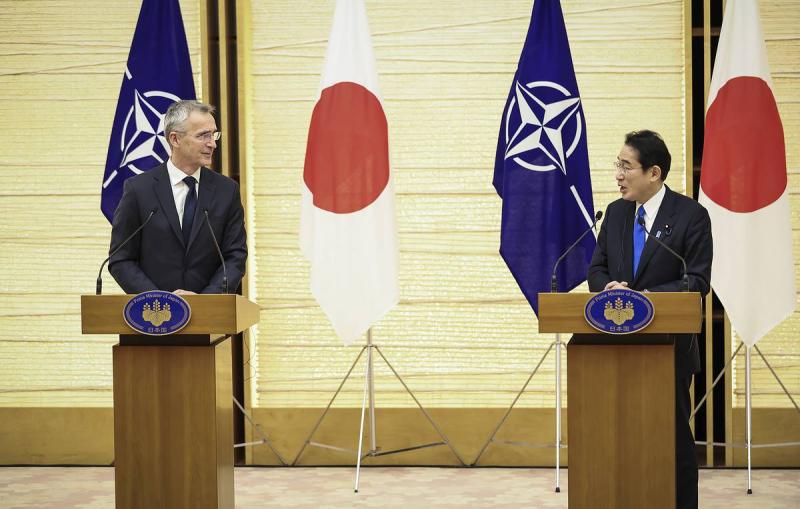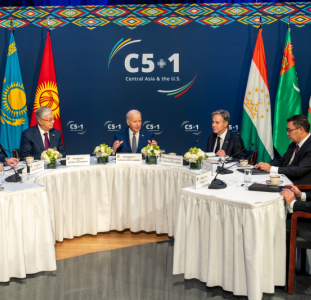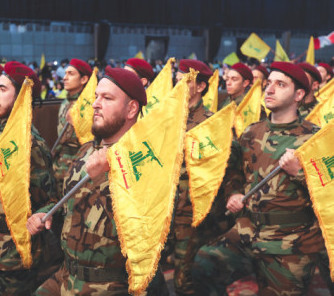
© Takashi Aoyama/ Pool Photo via AP/TASS
Deeply concerned about China's rise, Tokyo is persistently trying to involve NATO in addressing its own security problems. But not a single member state is ready to defend the interests of distant Japan, as bluntly stated by French President Emmanuel Macron.
Japanese Prime Minister Fumio Kishida is heading for his second NATO summit set to be held in Lithuania on July 11-12, where he intends to once again use the war in Ukraine to equate it with threats to peace coming from China, Russia and North Korea in the Far East. Tokyo would like to ward them off in conjunction with the North Atlantic Alliance. In a May interview with CNN, Japanese Foreign Minister Yoshimasa Hayashi said the reason for willing to get as close to NATO as possible lay in "the aggression by Russia to Ukraine, which has made the world more unstable."
But this is a mere figure of speech clear to any Western layman. In fact, the Japanese are afraid of engaging in the conflict between the United States and China over Taiwan 100 km from their maritime borders. In general, Tokyo understands it can no longer rely on Washington's support alone.
New security partners are needed like Australia, New Zealand and South Korea, whose leaders will also attend the summit in Vilnius. But the key hope is the influential states of Europe and NATO as a whole.
In March, German Chancellor Olaf Scholz and six members of his cabinet visited Japan, including the first in 16 years visit by defense minister. Boris Pistorius stayed in Tokyo longer than the rest of the delegation and held talks with his Japanese counterpart about Indo-Pacific security and military cooperation. Germany and Japan are both planning joint drills and willing to implement bilateral defense projects. As early as next year, the Bundeswehr plans to send a frigate to the region to engage in exercises, which Scholz believes should demonstrate "commitment to the freedom of the seas."
In January this year, the Japanese signed a military agreement with the UK, providing for a simplified process of deploying military units in each other's territory, swift joint military exercises and wider choices in military logistics. A joint project is already underway titled Global Combat Air Program, under which the UK, Japan and Italy will create a new generation fighter.
After the NATO summit, Kishida will by the way set for Brussels for talks with European Council President Charles Michel and European Commission head Ursula von der Leyen. A joint statement is expected in the follow-up, reflecting the parties’ readiness to intensify joint exercises in the IPR and boost maritime defense capabilities of Southeast Asia.
But the main thing for Kishida is naturally cooperation with NATO. The Japan-NATO partnership program has already been worked out and awaits adoption, stipulating cooperation in cybersecurity, space and information exchange about China and Russia.
In addition, NATO was expected to launch a representative office in Tokyo for closer cooperation with Japan, as agreed upon during the January visit to that country by NATO Secretary General Jens Stoltenberg, who said: "We may be oceans apart, but our security is closely connected" and urged broader bilateral ties, because democracies need strong partnerships. A similar NATO office does exist in Ukraine and Georgia, but it may be the first time it will appear in Asia to symbolize the Alliance's expansion plans in the Asia-Pacific.
Of course, China has certain objections to this, with Foreign Ministry spokesperson Mao Ning saying that NATO's continued eastward expansion advance "will inevitably undermine peace and stability. This should particularly concern the countries in the region."
The Russian Foreign Ministry reacted in a related move. "NATO’s intent to open an office in the Japanese capital is yet another proof of the alliance’s global ambitions and plans to seriously entrench in the Asia Pacific, in order to spread NATO-centric formats with anti-Russian and anti-Chinese charge," Russian Foreign Ministry spokeswoman Maria Zakharova said. "We are convinced that NATO’s advance in Asia will lead to militarization of this region and a buildup of the bloc standoff."
However, the strongest case against Japan’s rapprochement with NATO was expressed by Paris: “We are not in favor as a matter of principle,” a French official told reporters last Friday. “NATO means North Atlantic Treaty Organization,” he stressed, adding that the bloc’s Charter Articles 5 and 6 specifically refer to maintaining “security of the North Atlantic area.”
Politiсo.eu writes that some other NATO allies are also concerned about the new office, with three European diplomats briefed on the matter admitting that the strongest opposition comes from France, indeed.
Macron, after his triumphant spring visit to China, has apparently decided to make another gesture in pursuit of maintaining a special relationship with Beijing. Neither is old Europe interested in creating extra factors for strengthening Russian-Chinese military-political cooperation. Finally, France has always sought to flaunt with its unwillingness to pull the chestnuts out of the fire for America. Especially now, with a landmark confrontation with China looming.
And for Japan, it won't be any worse.
“As far as the office is concerned, the Japanese authorities themselves have told us that they are not extremely attached to it,” Politiсo.eu writes, referring to a French official. Not likely. The East knows the price of symbolic gestures and prepares them carefully. But alas, Kishida is going to come back from Europe without a trophy.









